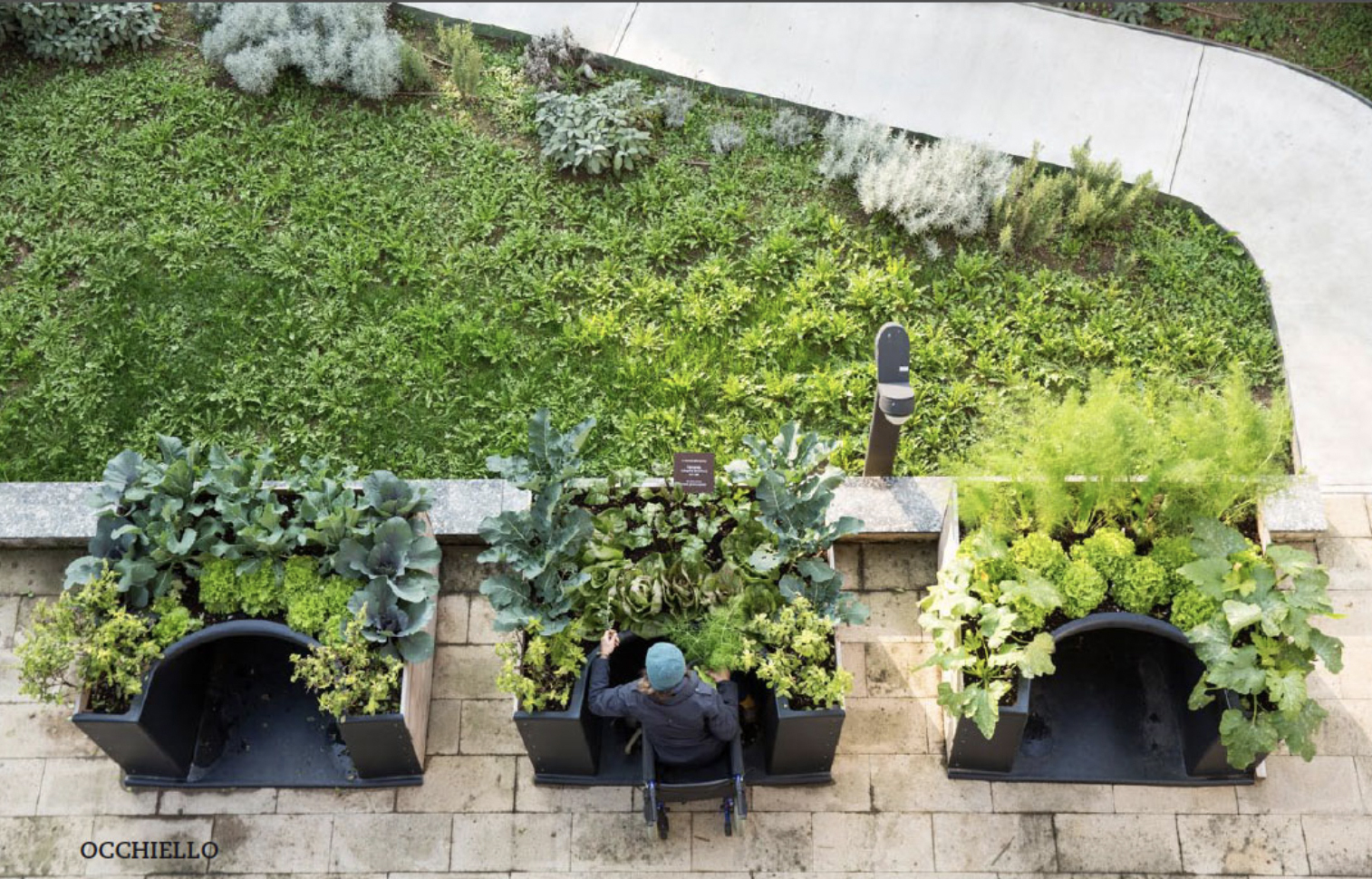As the summer begins to wind down and there is a foretelling chill in the morning air, vegetable gardens burst with their seasonal harvest. Many older adults enjoy the therapeutic nature of tending a garden, and research has found the activity can encourage seniors to stay more active and community gardens can help alleviate social isolation. More adaptable gardening products are making it easier for people of all abilities to enjoy spending time outdoors, digging in the dirt.
Terraform is a French company that has designed an ergonomic raised garden bed that allows people with reduced mobility to enjoy gardening while seated in a wheelchair or standing.
The Terraform kit includes the three flat sides made of untreated Douglas firs and a shell made of recyclable polyethylene. The garden planter can be assembled easily without any special tools. A curved niche on one side allows a person to stand or sit in a position that provides full access to the garden in front of them.
Adaptive gardening not only gives elderly adults and people with mobility problems an opportunity to spend time outdoors, but the activity also promotes a greater sense of independence, self-esteem, and overall well-being. Multiple raised beds installed on retirement homes grounds or community garden spaces can help facilitate more social interaction opportunities for older adults, and people with disabilities.
There are also many adaptive tools now available to help make gardening easier and more enjoyable for older adults or people with physical disabilities. Ergonomic hand tools, spades, planters, weeders, and garden snips help reduce strain on hands, wrists, and backs. Learn more about how tending a garden and spending time in nature can improve mental health, reduce stress and boost physical and overall wellbeing by following this link to the United Kingdom’s therapeutic horticulture non-profit, Thrive.






Add Your Voice
0 Comments
Join the Discussion